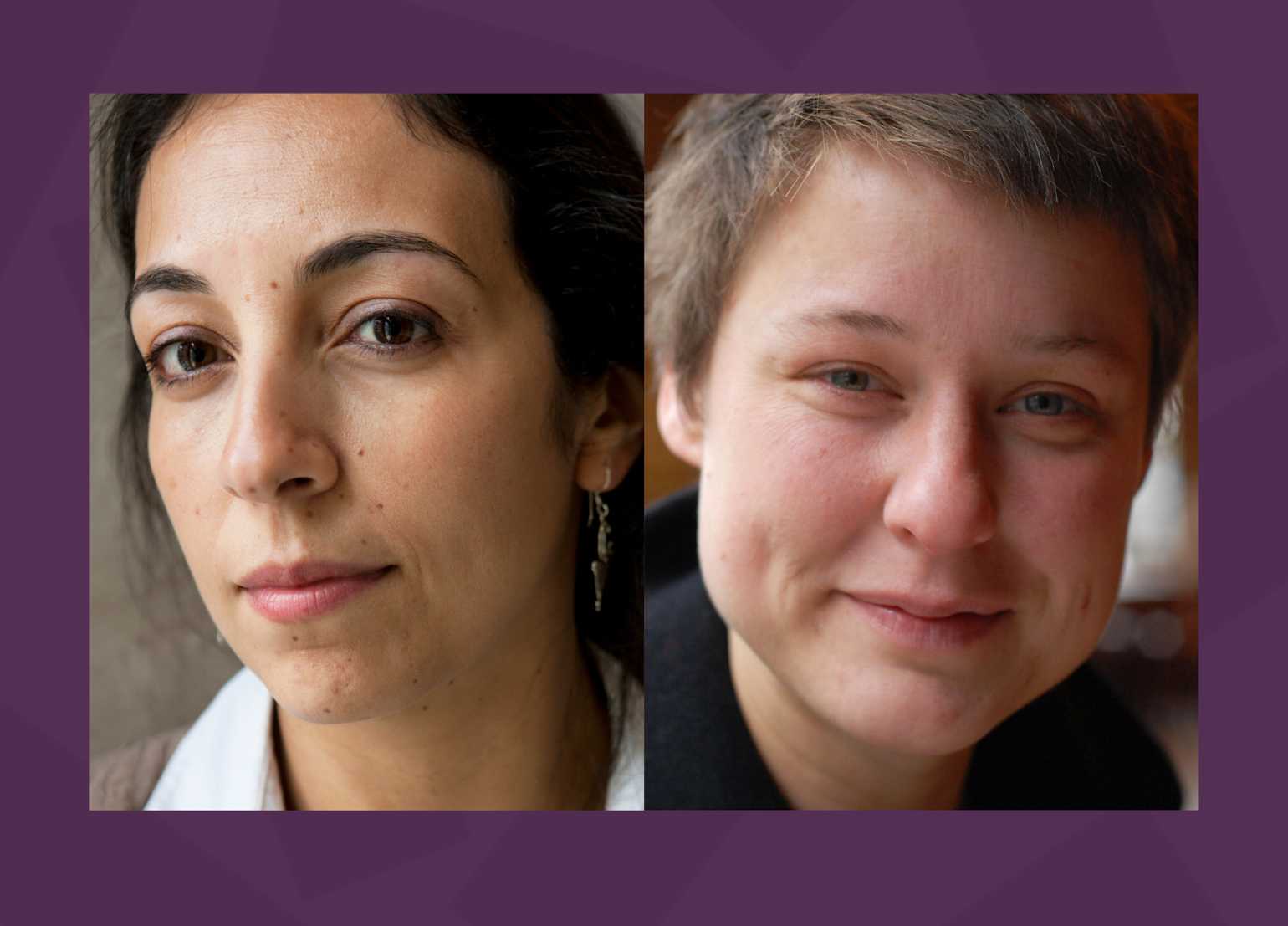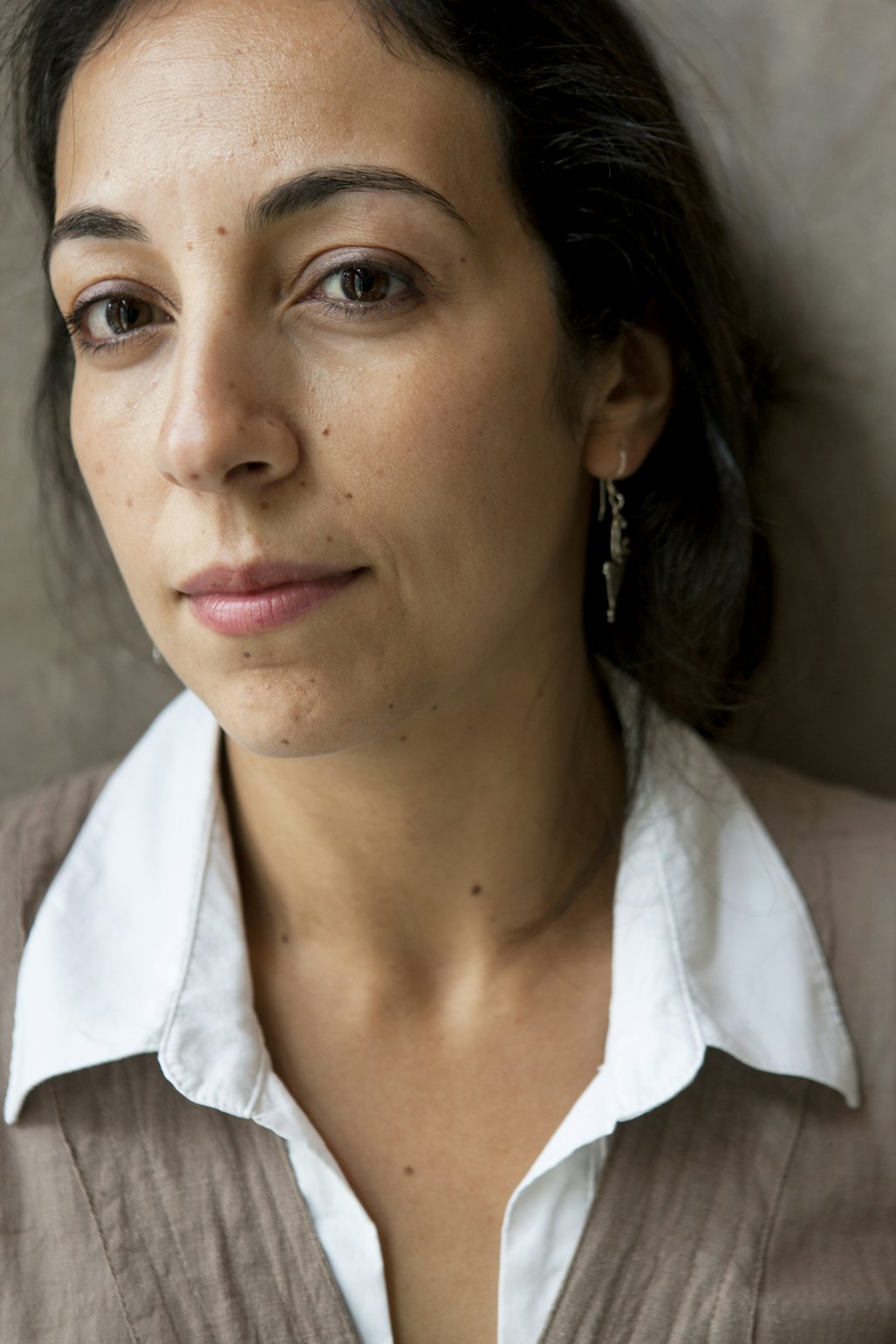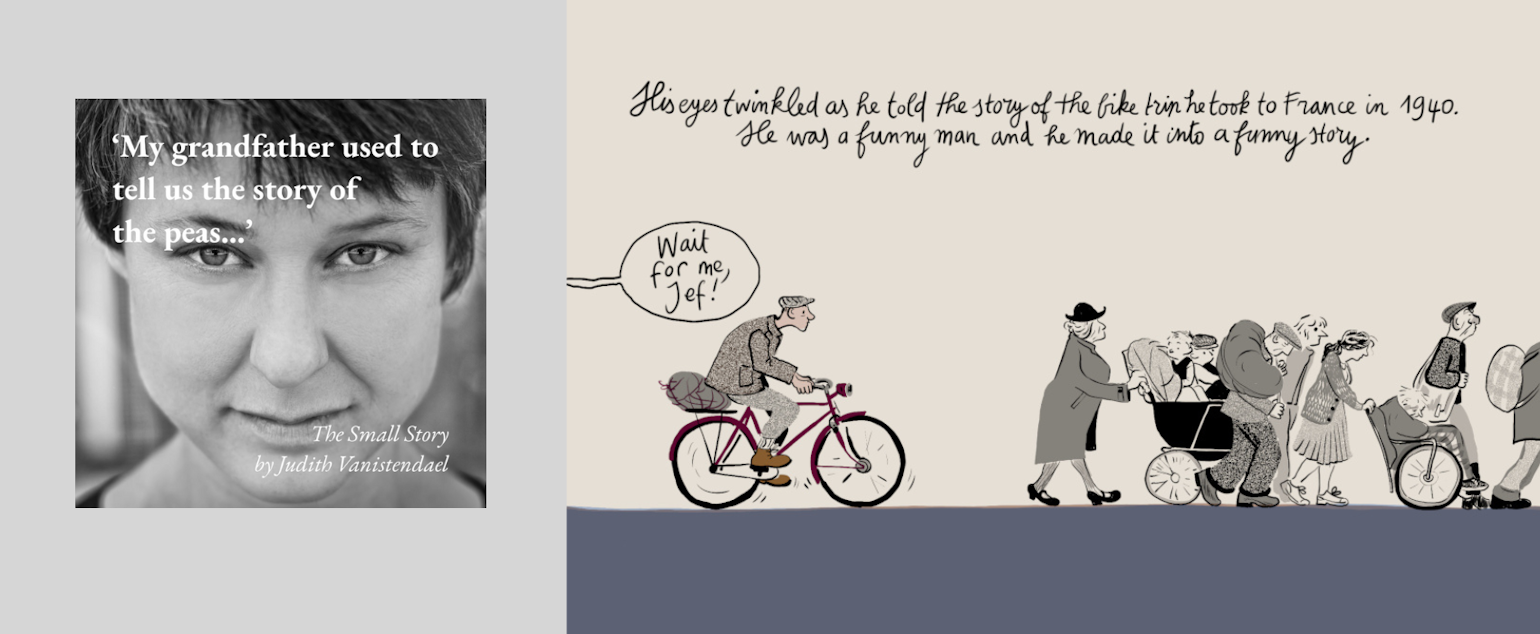Short stories on Fictionable
As part of our Flip through Flanders programme promoting Dutch-language literature from Flanders across the UK and Ireland, Judith Vanistendael and Rachida Lamrabet published a short story on Fictionable. Fictionable is a literary magazine devoted to the best new short stories from around the world. Get a glimpse of their stories.

‘Two Girls on Bicycles’ by Rachida Lamrabet

A phone call is a signal from a life left behind in this short story from Rachida Lamrabet, translated from Dutch by Johanna McCalmont.
Following the publication in January 2025, Rachida talked to Richard Lea on the Fictionable podcast. She recalls how the story was set in motion by a chance encounter with an old friend, which brought back memories of pedal-powered escapades while she was a teenager.
But she also talks about the present. “We’re living in a society, especially in western Europe, where apparently it isn’t possible to have a compromise between different worlds, different backgrounds. Very often we are led to believe that you cannot have both, you have to make a choice. The unequal society in which we live is marked by divisions of class and race which could only be addressed through radical change. Those who want to maintain the status quo, they are not in favour of that movement. There are signs that Belgium is beginning to confront its colonial past, but we still have difficulty facing what we did. This country cannot continue to hide itself. It must confront that history.”
‘The Small Story’ by Judith Vanistendael
Two boys, two bikes and a bag of peas. Judith Vanistendael's graphic short sets off in advance of the German Blitzkreig.

Following the publication in October 2024, Judith talked to Richard Lea on the Fictionable podcast. She talks about how this graphic short started when she began thinking about her own family, and how the funny story her grandfather Jef told about his bike trip to France in 1940 was actually “part of big historical events”.
Judtih also talks about her other work. One of the large stories that runs through it is the experience of refugees. Her first graphic novel, ‘Dance by the Light of the Moon’, is an autobiographical story about her first relationship.
A number of other topics are covered as well: her transition to working digitally, what AI could mean for the future of her craft, why the act of making is “such a deep pleasure” that it almost doesn’t matter if a story gets published or not, and how fiction is “very important, because that's the way to the heart”.